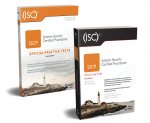
Code: 08287379
Investigation of Navier-Stokes Code Verification and Design Optimization
by Rajkumar Vaidyanathan
With rapid progress made in employing computational techniques for various complex Navier-Stokes fluid flow problems, design optimization problems traditionally based on empirical formulations and experiments are now being address ... more
- Language:
 English
English - Binding: Paperback
- Number of pages: 126
Publisher: Biblioscholar, 2013
- More about this

56.85 €
RRP: 57.98 €
You save 1.13 €

In stock at our supplier
Shipping in 15 - 20 days
You might also like
Give this book as a present today
- Order book and choose Gift Order.
- We will send you book gift voucher at once. You can give it out to anyone.
- Book will be send to donee, nothing more to care about.
More about Investigation of Navier-Stokes Code Verification and Design Optimization
You get 143 loyalty points
 Book synopsis
Book synopsis
With rapid progress made in employing computational techniques for various complex Navier-Stokes fluid flow problems, design optimization problems traditionally based on empirical formulations and experiments are now being addressed with the aid of computational fluid dynamics (CFD). To be able to carry out an effective CFD-based optimization study, it is essential that the uncertainty and appropriate confidence limits of the CFD solutions be quantified over the chosen design space. The present dissertation investigates the issues related to code verification, surrogate model-based optimization and sensitivity evaluation. For Navier-Stokes (NS) CFD code verification a least square extrapolation (LSE) method is assessed. This method projects numerically computed NS solutions from multiple, coarser base grids onto a freer grid and improves solution accuracy by minimizing the residual of the discretized NS equations over the projected grid. In this dissertation, the finite volume (FV) formulation is focused on. The interplay between the xi concepts and the outcome of LSE, and the effects of solution gradients and singularities, nonlinear physics, and coupling of flow variables on the effectiveness of LSE are investigated. A CFD-based design optimization of a single element liquid rocket injector is conducted with surrogate models developed using response surface methodology (RSM) based on CFD solutions. The computational model consists of the NS equations, finite rate chemistry, and the k-6 turbulence closure. With the aid of these surrogate models, sensitivity and trade-off analyses are carried out for the injector design whose geometry (hydrogen flow angle, hydrogen and oxygen flow areas and oxygen post tip thickness) is optimized to attain desirable goals in performance (combustion length) and life/survivability (the maximum temperatures on the oxidizer post tip and injector face and a combustion chamber wall temperature).
 Book details
Book details
Book category Books in English Society & social sciences Education
56.85 €
- Full title: Investigation of Navier-Stokes Code Verification and Design Optimization
- Author: Rajkumar Vaidyanathan
- Language:
 English
English - Binding: Paperback
- Number of pages: 126
- EAN: 9781288915903
- ISBN: 9781288915903
- ID: 08287379
- Publisher: Biblioscholar
- Weight: 240 g
- Dimensions: 246 × 189 × 7 mm
- Date of publishing: 13. March 2013
Trending among others
-

Cambridge IGCSE (R) & O Level Complete Chemistry: Student Book Fourth Edition
42.46 € -

Cambridge IGCSE (R) & O Level Complete Physics: Student Book Fourth Edition
41.96 € -

Cambridge IGCSE (R) & O Level Complete Biology: Student Book Fourth Edition
39.24 € -

Jim Trelease's Read-aloud Handbook
16.80 € -27 % -

All About Diamonds
26.66 € -

Oxford IB Diploma Programme: IB Economics Course Book
62.28 € -

OET Preparation
9.75 € -

Business Partner B1+ Workbook
16.90 € -3 % -

Oxford IB Diploma Programme: IB Theory of Knowledge Course Book
57.96 € -

Speed and Accuracy: Multiplication
8.64 € -

Pearson Edexcel International GCSE (9-1) English Language B Student Book
50.41 € -

KS3 Maths 10-Minute Weekly Workouts - Year 7
8.04 € -8 % -

KS3 Maths 10-Minute Weekly Workouts - Year 8
8.04 € -8 % -

Powerful Teaching: Unleash the Science of Learning
26.26 € -26 % -

The End of Education
13.48 € -25 % -

Deep Healing and Transformation
48.30 € -

Dancing Heads
12.17 € -24 % -

Freiarbeitsmaterial für die Grundschule - Deutsch - Klasse 1/2
22.83 € -4 % -

AQA GCSE German Higher Practice Papers
15.39 € -

Business Partner B1 Workbook
17.50 € -8 % -

Business Partner B2 Workbook
16.90 € -3 % -

Blue Book of Grammar and Punctuation: An Easy- to-Use Guide with Clear Rules, Real-World Examples , and Reproducible Quizzes, Twelfth Edition
15.19 € -28 % -

Grade 9-1 GCSE Maths AQA Revision Question Cards - Higher
10.05 € -4 % -

Positive Discipline Tools for Teachers
17.40 € -18 % -

Speed and Accuracy: Division
8.64 € -

Pearson Edexcel AS and A level Mathematics Statistics & Mechanics Year 1/AS Textbook + e-book
17.80 € -

(ISC) SSCP SG & SSCP Practice Test Kit, 3e
83.62 € -4 % -

Motivation and Reinforcement
46.38 € -

Read Write Inc. Phonics: Red Ditty Book Bag Books (Mixed Pack of 10)
74.36 € -

Imagine If...
11.26 € -28 % -

OET Reading Subtest Preparation
12.57 € -7 % -

Vol 2 Blackletter Lettering Adventures
25.35 € -1 % -

AS & A Level Maths For Dummies
17.30 € -27 % -

Forensic Linguistics Articles
14.48 € -1 % -

CompTIA Security+ Review Guide - Exam SY0-601
24.85 € -24 % -

Practical Guide on Veterinary First Aid using Homeopathy
14.78 € -2 % -

Abolition of Man
18.71 € -1 % -

Human Landscapes from My Country
28.67 € -21 % -

Corrected Squares of The Book of Abramelin
503.88 € -

Hanbo Jutsu: Use of Hanbo, Cane and Walking Stick for Self Defense
11.36 € -

Reading Mind - A Cognitive Approach to Understanding How the Mind Reads
21.43 € -28 % -

North Korea's Military Threat
25.45 € -

English Language & Literature WORKBOOK: York Notes for GCSE (9-1)
8.95 € -9 % -

Release Your Inner Drive
15.09 € -18 % -

Effect of Registration Errors on Tracking in a Networked Radar System
56.85 € -1 % -

Princeton Review SAT Premium Prep, 2021
42.66 € -4 % -

CEH v11 Certified Ethical Hacker Study Guide + Practice Tests Set
74.36 € -5 % -

10 Practice Tests for the SAT, 2021 Edition
31.59 € -

OCP Oracle Certified Professional Java SE 11 Programmer II Study Guide - Exam 1Z0-816 and Exam 1Z0-817
49.91 € -6 %
Collection points Bratislava a 2642 dalších
Copyright ©2008-24 najlacnejsie-knihy.sk All rights reservedPrivacyCookies





 15549 collection points
15549 collection points Delivery 2.99 €
Delivery 2.99 € 02/210 210 99 (8-15.30h)
02/210 210 99 (8-15.30h)